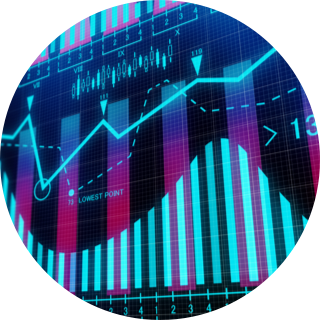The stock market is a broad term for the market in which shares (stocks), bonds, options, derivatives and other financial instruments are traded. The 60 major stock markets around the world, account for $69 trillion in total value.[1] such as
us stock market
stock market game
Chinese stock market
stock market Australia
ASX stock market
world stock markets
That is a staggering amount of value, and it is pleasing to know that Australia holds is own with the Australian Securities Exchange or ASX, with a total value of $1.207 trillion, putting it firmly in the top 16 stock markets or exchanges in the world!
[1] http://money.visualcapitalist.com/all-of-the-worlds-stock-exchanges-by-size/
These companies are what is referred to as a ‘listed company’ and have shareholders that have a limited number of shares that they can buy and sell at any time the markets are open.
The largest stock market in the world is the New York Stock Exchange, with a market cap of $28,528,761 million June 30[1] 2018!
Like any market, the aim of a stock market is to bring together those who wish to buy shares in a particular company, and those that wish to sell them.
Depending on the liquidity of the share, the ongoing performance of the company and future announcements the price of a share goes up and down, again, driven by the microeconomic factors of demand and supply.
To buy a stock, an investor through their online brokerage – such as CommSec, IG Markets, or ANZ Share Investing – can review the company’s performance. On the ASX all company shares on the stock market are denoted by three letters, for example Village Roadshow Limited is VRL.

On the ASX website, investors can type three letters and review all the company announcements, price performance and history to get a better understanding of where the company sits. Investors can also review the companies website, AGM or annual general meeting reports, financial press (financial review newspaper) and a range of other information sources (including professional investment advice) before putting an offer or ‘bid’ in on their share trading platform.
With a company selected, the buyer can select the price and quantity of the share they wish to purchase, and a date that the offer is valid until.
Buyers, on the other hand, can select the number of shares they wish to sell and the price at which they are looking to sell it at, then they wait until the ASX CHESS or Clearing House Electronic Sub-Register System can facilitate the trade between the buyer and sellers’ brokers[2].
[1] https://www.nyse.com/market-cap
[2] https://www.asx.com.au/documents/research/chess_brochure.pdf
The largest stock market in the world is the New York Stock Exchange, with a market cap of $28,528,761 million June 30 2018!
Until companies are listed on stock markets – such as the ASX – they are private companies and are not required to make their financial reporting information public.
Once a company ‘lists’ or ‘floats’ through the process of an IPO or initial public offering, companies must report in an extremely formalised, transparent and accountable their financial performance as well as their underlying activities and performance so that shareholders can see how their invested money is being put to use and detailed info on performance.
While funding is only one side, the other side is people with any money to invest, the stock market offers them a place of invest in companies, listed finds and other financial instruments to profit or hedge their investment portfolios for future financial benefit.
Even people in Australia who are not ‘active’ investors but are employed in Australia are investors in the Australian Stock market or ASX – many without even knowing it.

Superannuation account holders are similar to managed fund holders – except the fund cannot be accessed until the account holder’s retirement in the case of superannuation. Superannuation takes mandatory contributions from employers and places it in a managed fund account, which is invested as the accountholder stipulated within the risk profile of the super fund selected.
Most of the super accounts, apart from the extremely low-risk funds that invest in property or bonds, would be actively investing in the stock market on behalf of their clients.
One of the main reasons that stocks and the economy are able to move independently from each other is that one is micro, and one is macro. Microeconomics is the study of economic tendencies, or what is likely to happen when individuals make certain choices or when the factors of production change.[1]
In terms of the stock market, microeconomics may be the performance of a particular industry, market, company, products, people and elements that directly affect the eco-system around a company. This company’s performance be it positive or negative and will track as such on the stock market should it be a listed company.
Macroeconomics, on the other hand, is a branch of the economics that studies how the aggregate economy behaves. In macroeconomics, a variety of economy-wide phenomena is thoroughly examined such as inflation, price levels, rate of growth, national income, GDBP and changes in unemployment.[2]
Macroeconomics is directly related to the economy and is affected by public policy, government intervention and geopolitics. Therefore, a company could most certainly be crashing, while the economy is thriving, and vice versa.
For example, the US economy is large and includes thousands of companies, millions of workers, and billions of dollars. The factors that go into moving it forward or holding it back are numerous. A stock is dependent on one very specific, micro factor -- supply and demand.[3]
[1] https://www.investopedia.com/terms/m/microeconomics.asp
[2] https://www.investopedia.com/terms/m/macroeconomics.asp
[3] https://www.thebalance.com/the-stock-market-and-the-economy-are-two-different-things-3141234
The Nasdaq, beginning in the 1970s started out as the National Association of Securities Dealers Automated Quotations or a system that provided quotations for the market.
It was the world’s first electronic stock market and their technology was used to set up the electronic platforms for many of the worlds other platforms including that of the NY Stock Exchange.[1]
However, when 2006 came around and the SEC granted approval to register as a national securities exchange and it went onwards from there. Today the Nasdaq has grown into a global leader, taking full advantage of technological advances to bill itself as a natural home for high-tech companies seeking to list their shares. Some of the largest companies in the world are primarily listed on the Nasdaq, validating its place in the financial world.[2]
Today, some of the largest companies in the world, apple, Alphatbet Inc (Google), Microsoft, Facebook, Cisco and Intel are all listed on the Nasdaq exchange.
Outside of the USA, there is the Tokyo Stock Exchange, the Shanghai Stock Exchange, Hong Kong Stock Exchange and London Stock Exchange all of which are huge in size and scale and servicing their respective host markets and the companies listed upon them.
Global stock markets play a vital role in keeping the companies that are listed upon them around the world funded, accountable and viable for the future. They provide a mechanism for superannuation and retirement funds to invest and grow significantly over long periods.

Stock markets have also provided companies not only with access to funding but financial institutions access to bring the markets down around them when governments have deregulated markets. The 2008 financial crisis was in large part thanks for the stock market in the US.
With the heavy reliance on housing and the previously held notion that ‘housing can’t fail’, deregulation saw unscrupulous lending activities, exposing individual homeowners without the means to pay their mortgages. This crisis exposed the banks that held the mortgage, the holders of the CDS or credit default swap where the banks packaged up these mortgages and sold them on the markets as securities to investors.
When it all came tumbling down, several banks closed their doors, millions of people lost their homes, over $12 trillion wiped from global markets all thanks to the stock market offering opportunity for some to prosper.
In the end, the taxpayer had to bail everyone out and people lost everything. The stock market is a beautiful financial instrument, providing endless opportunities to prosper, diversify, trade and invest. If you’re looking to enter the marketing do so with care and careful consideration, and always work to a personal financial plan and invest what you can afford to lose, as we never know when another 2008 may come around next.
[1] https://www.finra.org/investors/nyse-nasdaq-and-get-know-uss-stock-exchanges-part-1
[2] https://www.fool.com/knowledge-center/what-is-the-nasdaq.aspx
Stock Markets enable businesses, governments and organisations to raise capital, which can allow companies to expand their operations, invest in new infrastructure and ideally grow. In return for this capital, investors receive a ‘piece of the company’ by way of shares – which can be lucrative should the company be successful.
In addition, if a company decides it wants to raise money and have its shares traded on a stock exchange, it will sell shares to investors in what is known as an initial public offering (IPO)[1]. An IPO allows the company to become listed, raise capital or ‘payout’ the original owners or shareholders for their hard work in getting the company to its current stage, and continue its journey from there.
The Stock Market has risks and is exposed to volatility and individuals, companies, institutions and governments can all realise large capital losses should the market turn against them or they make an informed investment.
The best advice is to seek advice, undertake education and speak to professional advisors before entering your journey on the sharemarket.
[1] https://www.commsec.com.au/support/learn/investing-basics/how-does-the-stock-market-work.html
1. Schedule an appointment (Conference Call) with an Investment Manager
2. Submit a Managed Discretionary Account (MDA) application with Walker Capital Australia.
3. Open a trading account with the Walker Capital Australia’s executing broker.
4. Select from our range of investment strategies and choose your asset allocation between the choices of accounts.
5. Once all accounts are opened, and funds have been chosen, our team gets to work and begins trading.
Walker Capital Disclaimer *
Walker Capital Private Wealth Pty Limited (ABN 86 161 363 097) holds an Australian Financial Services Licence (AFSL No. 436859). You should read and consider the relevant Disclosure Document and the issuer's Terms and Conditions before making a decision about whether to purchase any financial products.
Walker Consulting (Australia) Proprietary Limited t/as Walker Capital Australia (ACN: 602952116) is a Corporate Authorised Representative (CAR No. 1250196) of Walker Capital Private Wealth Pty Limited (ACN 161 363 097) (AFSL no. 436859)
© Copyright 2022 Walker Capital – All Right Reserved